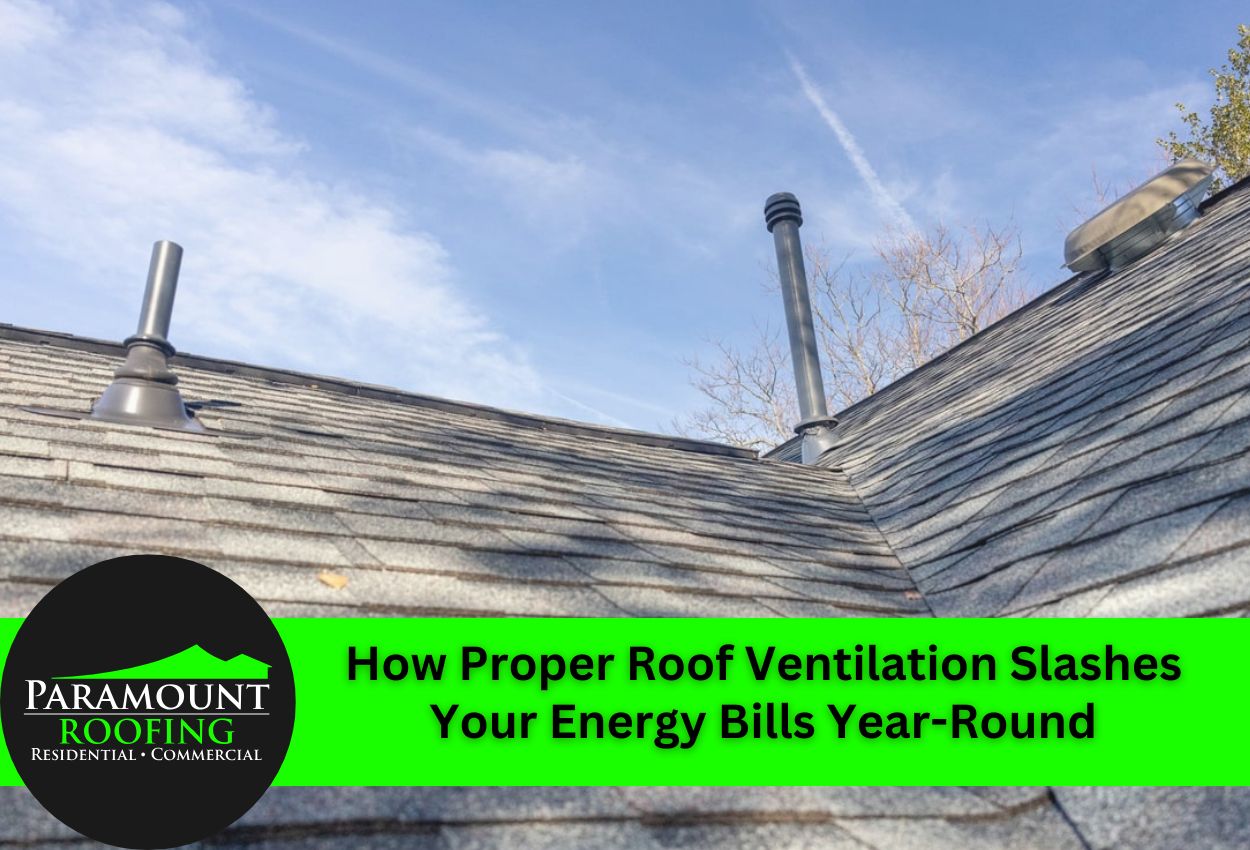
The shape of your roof does more than just top off your house — it defines your home’s character while providing protection against Michigan’s weather patterns. For Detroit homeowners researching the “best roof shape for my house,” your choice should balance visual appeal with durability, energy efficiency, and maintenance needs.
Each residential roof design option has different advantages. Some excel at shedding snow common during Detroit winters, while others may provide better attic ventilation during humid summer months. Your neighborhood’s architectural style might also influence which house roof types complement your home best, whether you own a historic Tudor in Boston-Edison or a modern build in the suburbs.
Choosing roof styles for homes isn’t just about aesthetics. The pitch, materials, and overall design directly impact how your roof handles rain runoff, resists wind damage, and maintains structural integrity through freezing and thawing cycles. Weather-resistant roof designs are especially important in our region, where a single year can bring everything from ice storms to summer downpours.
By understanding how various roof shapes for different home architectures perform in southeast Michigan, you can make a decision that enhances both your home’s appearance and its protection against the elements. This guide to house roof types will help you navigate the options available for your Detroit area home.
Popular Roof Designs and Their Advantages
When considering the best roof shape for your house in the Detroit area, several classic designs stand out. Gable roofs, with their familiar triangular shape, remain the most common choice for Michigan homes due to their excellent snow-shedding ability and straightforward construction. The steep pitch prevents snow accumulation during harsh winters, reducing the risk of collapse and ice dams that plague many Detroit homes.
Hip roofs offer superior stability in high-wind conditions, with slopes on all four sides creating an inherently stronger structure. This makes them a good choice in areas of Michigan that experience severe weather. Though more complex to build, hip roofs provide more versatile ventilation options that can benefit homes throughout the year.
Mansard roofs bring a touch of European elegance while maximizing usable attic space. Their steeper lower slope and flatter upper portion create distinctive living areas, though they require more maintenance in Michigan’s climate due to potential snow accumulation on the flatter sections.
Flat roofs, while less common in residential applications, offer modern appeal and potential outdoor living space. However, they require a slight slope, specialized drainage systems, and regular maintenance to handle Michigan’s precipitation.
The roof shape you select impacts not just weather resistance but also your home’s curb appeal and energy efficiency. In Detroit’s competitive housing market, a well-designed roof can raise property value and improve your property’s character.
Climate Considerations for Michigan Roofs
Michigan’s distinct four-season climate constantly challenges residential roofing systems. The heavy snowfall that blankets Detroit homes during winter months makes roof pitch particularly important. Steeper roof designs like gable and hip roofs naturally shed snow more effectively, preventing dangerous weight accumulation that can stress structural components. A well-designed roof with adequate slope can eliminate the need for manual snow removal and reduce the risk of ice dam formation along roof edges.
The freeze-thaw cycles that characterize Michigan winters and early springs are especially punishing to roofing systems. As temperatures fluctuate between freezing and thawing, water expands and contracts, potentially creating openings in roofing materials. Roof shapes with minimal valleys and complex junctions tend to perform better under these conditions, as they provide fewer opportunities for water infiltration.
For Detroit homeowners concerned about energy efficiency, roof design directly impacts heating and cooling costs. A properly insulated attic space under a hip or gable roof provides crucial temperature regulation during both summer heat waves and winter cold snaps. Lighter colored roofing materials can reflect summer heat, while ventilation systems prevent moisture buildup and improve overall energy performance.
Wind resistance becomes critical during Michigan’s seasonal storms. Hip roofs generally offer superior performance during high winds compared to gable roofs, as their four-sided design eliminates the large, vulnerable gable ends that can catch wind during severe weather. This makes them an excellent consideration for areas prone to strong storms.
Matching Roof Shapes to Your Home’s Architecture
Finding harmony between your roof shape and your home’s architectural style is essential for both curb appeal and structural soundness. In Detroit’s neighborhoods, from historic Woodbridge to modern Royal Oak developments, homes showcase a variety of architectural influences that each pair naturally with specific roof designs.
Colonial-style homes, common throughout Detroit suburbs, traditionally feature symmetrical gable roofs with a moderate to steep pitch. These classic roof shapes complement the formal balance of Colonial architecture while effectively managing Michigan’s snow loads. For Tudor and Victorian homes found in Boston-Edison and Indian Village, steeply pitched roofs with multiple gables not only honor the historical design but also provide lasting durability in our northern climate.
Ranch and mid-century modern homes benefit from low-pitched hip or gable roofs that emphasize their horizontal lines. Meanwhile, contemporary and modern designs often incorporate flat or shed roof styles that create clean, distinctive silhouettes. For Craftsman bungalows, low-pitched gable roofs with wide eaves preserve their charm while offering protection against Michigan weather.
When selecting a roof shape for different home architectures, consider both preservation and practicality. A historically appropriate roof shape maintains your property’s authenticity and often its value, particularly in Detroit’s designated historic districts. Working with a roofing contractor familiar with local architectural styles ensures your roof design enhances your home’s unique character while delivering the weather resistance needed for Michigan’s challenging climate.
Considerations Beyond Curb Appeal
When choosing the best roof shape for your house, Detroit homeowners should look beyond visual appeal to practical benefits that impact daily living. Different roof configurations create vastly different interior spaces and long-term maintenance requirements. These considerations often become the deciding factors that determine your satisfaction with your roofing choice years down the road.
Gable roofs create generous attic spaces that can be converted into spare bedrooms, home offices, or storage areas. This additional usable square footage can significantly increase your home’s functional living space without expanding its footprint. Hip roofs, while offering less attic space, provide more consistent ceiling heights throughout the space, making finished attic conversions more straightforward.
Consider your future needs when selecting a roof shape. If you anticipate expanding your home vertically in the coming years, a mansard design might accommodate dormer additions more easily than other configurations. For Detroit homes where energy efficiency is the priority, the insulation potential of different roof shapes is critical, as proper attic ventilation directly impacts heating and cooling costs.
Maintenance requirements vary between roof types. Flat and low-slope roofs require more frequent inspections and maintenance to prevent water accumulation, especially in Detroit, where heavy snowfall and spring thaws can stress roofing systems. Steeper-pitched roofs naturally shed debris and moisture but may present safety challenges when maintenance is needed. Your roof’s expected lifespan in our Michigan climate should factor into your decision-making process.
Balancing Budget with Long-term Value
When selecting the best roof shape for your house, it’s important to understand that the initial investment varies considerably between different designs. Complex roof structures like mansards or intricate hip roofs typically require more materials and labor hours during construction than simpler gable designs. The additional corners, valleys, and architectural details need skilled craftsmanship to ensure proper installation and weather protection.
While the initial construction complexity might seem daunting, Detroit homeowners should consider the long-term value that various roof shapes deliver. More sophisticated roof designs often provide superior protection against Michigan’s harsh weather conditions, potentially reducing repair and maintenance expenses over decades of ownership. A well-constructed hip roof, for instance, may better withstand the powerful windstorms that occasionally sweep through the region.
Energy efficiency is another factor to consider in the roof shape discussion. Properly designed roofs with adequate ventilation and insulation can dramatically reduce heating and cooling costs throughout Michigan’s temperature extremes. These ongoing savings accumulate year after year, offsetting initial construction investments.
Perhaps most importantly, optimal roof design enhances property value. When selecting from various residential roof design options, remember that distinctive, well-executed roof shapes contribute significantly to curb appeal and architectural character. In general, homes with quality roofs appropriate to their architectural style have higher resale values in the Detroit market. By viewing your roof as a long-term investment rather than simply an expense, you can make decisions that balance immediate budget concerns with lasting value.
How to Decide on a Roof Shape for Your Home
For Detroit homeowners choosing a roof shape, this significant decision should weigh both practical requirements and aesthetic preferences. Your final choice will impact your home’s performance, appearance, and value for decades to come.
Start by assessing your neighborhood. Drive around your area and note which residential roof design options are prevalent on homes similar to yours. This not only ensures architectural harmony but often indicates which roof shapes can withstand local weather conditions. Detroit’s historic neighborhoods often have established architectural patterns worth preserving, while newer developments may offer more flexibility.
Additionally, consider your property’s characteristics. Your lot orientation, tree coverage, and exposure to prevailing winds all influence which roof shape will perform best. Homes in open areas may benefit from wind-resistant hip roofs, while properties with heavy tree coverage might need steeper pitches to prevent debris accumulation.
Consult with experienced Detroit roofing professionals who understand local building codes and climate challenges. They can provide property-specific recommendations based on factors like your home’s structural support system, existing architecture, and insulation needs. A trustworthy contractor will explain how different roof shapes for different home architectures might perform on your specific property, helping you make a decision that balances immediate preferences with long-term performance.
Explore the Best Roof Shape for Your Detroit Home with Paramount Roofing
Choosing the right roof shape is crucial for not only enhancing the aesthetic appeal of your Detroit home but also for ensuring it stands up to Michigan’s changing weather conditions. At Paramount Roofing, we understand the importance of a roof that complements your home’s architecture while offering maximum durability and energy efficiency. Whether you’re considering a sleek flat roof for a modern look or a sturdy gable roof for traditional charm, our experts are here to guide you through every step.
Don’t let the variety of choices overwhelm you. Call Paramount Roofing today at (586) 690-0227 to discuss your roofing needs and find the perfect solution that balances beauty, functionality, and cost. Make the best choice for your home with professional advice tailored to Detroit’s climate and architectural styles.
 Free Estimate
Free Estimate
 Request Service
Request Service Locations
Locations 



